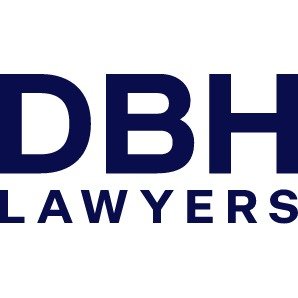Best Personal Injury Lawyers in Salisbury
Share your needs with us, get contacted by law firms.
Free. Takes 2 min.
List of the best lawyers in Salisbury, Australia
About Personal Injury Law in Salisbury, Australia
Personal injury law in Salisbury, Australia, is a legal domain that allows individuals who have been physically or psychologically harmed due to the negligence or wrongdoing of another party to seek compensation. This can include injuries from car accidents, workplace incidents, slips and falls, or medical malpractice. The objective is to restore the injured person to the position they were in before the incident by obtaining monetary compensation for their losses. Salisbury, like other regions in South Australia, adheres to state-specific legislation governing personal injury claims, aiming to protect residents and ensure just outcomes.
Why You May Need a Lawyer
There are several scenarios wherein seeking the guidance of a personal injury lawyer in Salisbury might be beneficial. If you've suffered a severe injury that resulted in significant medical expenses or impacted your quality of life, legal advice can help you navigate the complexities of insurance claims and negotiations. Additionally, if liability is contested or if you're struggling to obtain fair compensation from an insurance company, legal representation can be crucial. Lawyers specializing in this area can help gather evidence, calculate future expenses such as ongoing medical treatment and lost wages, and represent your interests to achieve the best possible outcome.
Local Laws Overview
In Salisbury, personal injury claims are governed by South Australian legislation, including the Civil Liability Act 1936. This act outlines the duty of care principles and the calculation of damages for personal injury. A key aspect of these laws is the 'no fault' scheme under the Compulsory Third Party (CTP) insurance for motor vehicle accidents, which allows injured road users to receive benefits irrespective of who was at fault. Time limitations are critical in personal injury cases; generally, there is a three-year limit from the date of the accident to file a claim, but this can vary depending on individual circumstances. Strict adherence to these timelines is essential, or the right to compensation may be forfeited.
Frequently Asked Questions
What types of incidents can lead to a personal injury claim?
Personal injury claims can arise from several types of incidents, including motor vehicle accidents, workplace injuries, slip and fall accidents, medical negligence, and defective product injuries.
How much compensation am I entitled to?
The compensation amount depends on various factors such as the severity of the injury, medical expenses, lost income, and emotional distress. A lawyer can provide a more accurate estimation based on your specifics.
What should I do immediately after an incident?
Seek medical attention immediately, report the incident to the relevant authorities or your employer, document the scene if possible, gather witness information, and consult a lawyer before discussing the matter with any insurers.
Is there a time limit to file a personal injury claim?
Yes, generally you have three years from the date of the injury to file a personal injury claim in South Australia. There may be exceptions depending on the nature of the case and the individuals involved, so consulting a lawyer is advised.
Can I handle a personal injury case on my own?
While you can handle your claim, navigating the legal system without expertise can be challenging, especially when dealing with insurers or legal documentation. A lawyer's involvement can simplify the process.
What if I was partly at fault for the accident?
Even if you were partially responsible, you might still be entitled to compensation. The concept of 'contributory negligence' may apply, which might reduce the compensation amount proportional to your degree of fault.
How long does it take to resolve a personal injury claim?
The timeline for resolving personal injury claims can vary greatly depending on complexity, the severity of injuries, and whether a settlement is reached or the case goes to court. This process can take anywhere from a few months to several years.
Will my personal injury claim go to court?
Many personal injury claims are settled out of court through negotiations. However, if a fair settlement cannot be reached, it may be necessary to take the claim to court for resolution.
How is pain and suffering calculated?
Pain and suffering are considered as "general damages" intended to compensate for non-economic impacts such as pain, mental anguish, and loss of enjoyment. Lawyers and courts consider various factors, including severity and permanence, to estimate this compensation.
Can I switch my lawyer during a personal injury case?
Yes, you have the right to switch lawyers if you're not satisfied with your current legal representation. It's advisable to find another lawyer first to ensure a smooth transition.
Additional Resources
Individuals seeking more information or assistance in personal injury cases in Salisbury, Australia, can consider resources such as the Law Society of South Australia for lawyer referrals, the South Australian Civil and Administrative Tribunal for dispute resolutions, and local community legal centers offering free advice. Additionally, the Compulsory Third Party Insurance Regulator provides details about claiming benefits after road accidents.
Next Steps
If you require legal assistance for a personal injury case in Salisbury, Australia, the first step is to gather all relevant documentation and evidence concerning your accident. Schedule a consultation with a reputable personal injury lawyer to discuss your situation and explore your legal options. Ensure that you understand any legal fees involved and the terms of representation. Keep track of any developments, maintain open communication with your lawyer, and follow their guidance closely to enhance the prospects of a favorable outcome.
Lawzana helps you find the best lawyers and law firms in Salisbury through a curated and pre-screened list of qualified legal professionals. Our platform offers rankings and detailed profiles of attorneys and law firms, allowing you to compare based on practice areas, including Personal Injury, experience, and client feedback.
Each profile includes a description of the firm's areas of practice, client reviews, team members and partners, year of establishment, spoken languages, office locations, contact information, social media presence, and any published articles or resources. Most firms on our platform speak English and are experienced in both local and international legal matters.
Get a quote from top-rated law firms in Salisbury, Australia — quickly, securely, and without unnecessary hassle.
Disclaimer:
The information provided on this page is for general informational purposes only and does not constitute legal advice. While we strive to ensure the accuracy and relevance of the content, legal information may change over time, and interpretations of the law can vary. You should always consult with a qualified legal professional for advice specific to your situation.
We disclaim all liability for actions taken or not taken based on the content of this page. If you believe any information is incorrect or outdated, please contact us, and we will review and update it where appropriate.









